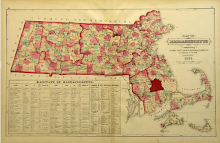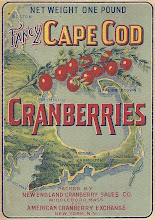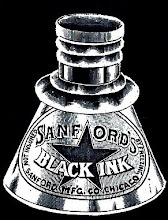Surprisingly, Middleborough residents over a century ago were no different, nostalgically viewing the snows experienced in their childhood as well as the winter pastoralism so beautifully evoked in Whittier's Snow-Bound (1866) as relics of a by-gone era.
When large storms in late February, 1893, passed through southeastern Massachusetts, leaving in their wake nearly twenty-four inches of snow, a correspondent for one of the local newspapers was prompted to label the season "an old fashioned winter."
Two feet of snow on the level this week confirms the truth of the impression which lingers in the minds of the populace that this is an "old-fashioned" winter. The roads outside the village have been badly drifted in many places. The drifts were especially deep on Titicut and Blackstone streets [across the Taunton River in Bridgewater] and some of them could only be passed by hard shovelling.
While "hard shovelling" is certainly not an enviable task, heavy snow and snow-bound households are nonetheless welcome and nostalgic reminders of winters past.
Source:
Unidentified newspaper clipping, February 23, 1893, Collection of the Middleborough Historical Association























+of+Smoky+Mountains+018.jpg)
0 comments:
Post a Comment